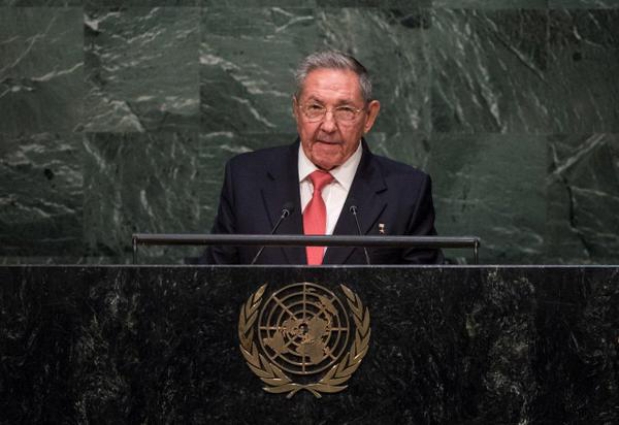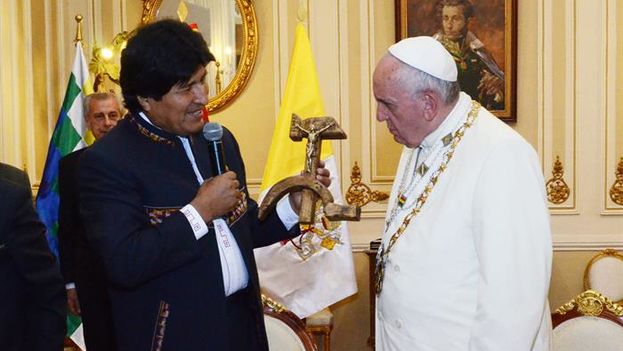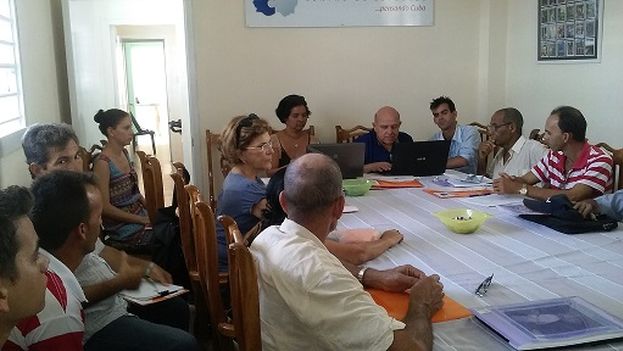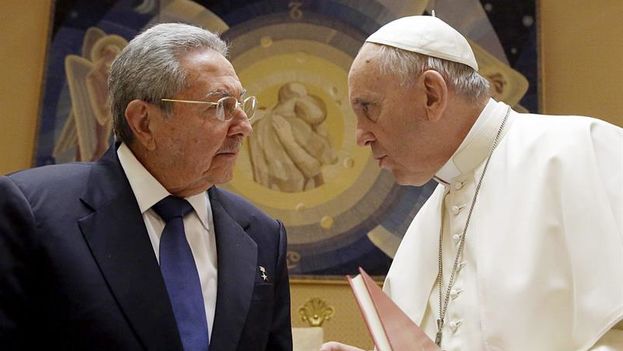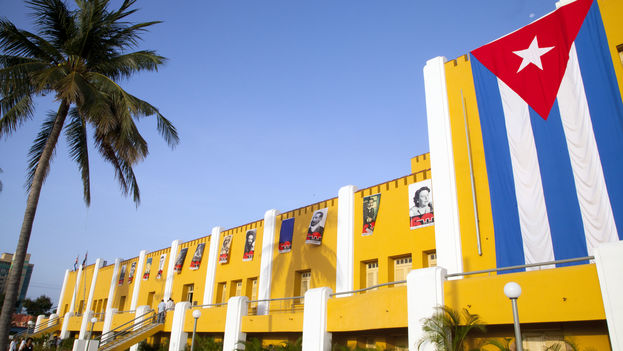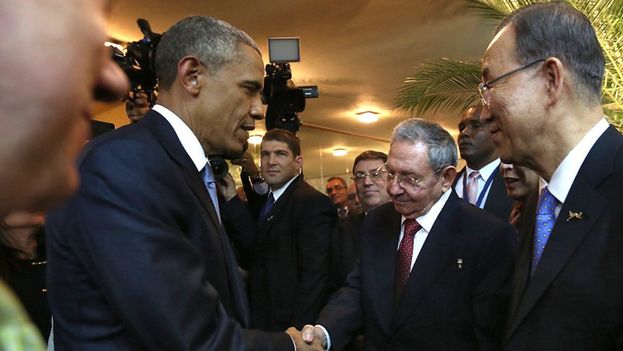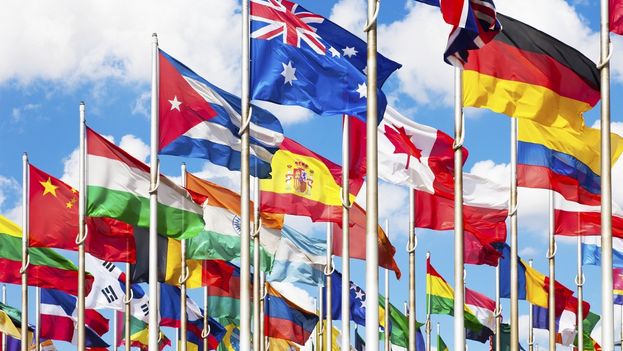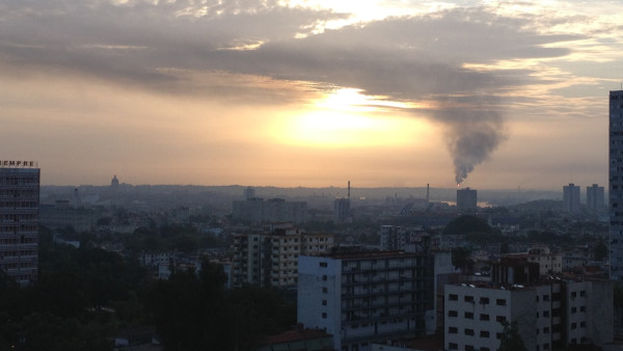Its origin is the conception of socialism inherited from Stalinism, which was based on the concentration of ownership and decision-making, and the system of wage-labor for the State, with everything administered by the Communist Party continue reading
: a State-monopoly capitalism that sharpened all the conflicts of the exploitative wage system.
The lack of a solution to these problems has stalled the productive forces, the development of society, economic progress, modernity and improvements in the living conditions of the great majority of the population.
The solutions move to increase the participation of citizens in property, ownership of the results of their work, and decisions of all kinds: economic, political and social. Democratization of politics and socialization of the economy are also imposed.
But “state socialism” blocked these solutions, almost eliminating the small and medium proprietor, preventing the development of forms of free labor — unionized or otherwise — the free-management of production, the social economy, and restricting the democratic participation of citizens in political matters.
Now, with the normalization of relations with “the enemy,” there is no danger of military aggression, always used as a justification to postpone the empowerment of the people, and the Cuban government should not delay any further moving in this direction.
The solutions move to increase the participation of citizens in property, ownership of the results of their work, and decisions of all kinds
The return to power of groups of oligarchs allied to American capital would not resolve these contradictions – rather it would increase them – newly excluding workers and citizens in general from economic and political power, with concentrated ownership passing from the hands of the State to the huge capitalist entrepreneurs, and political power from the Communist Party to another party that could act at will without submitting itself to democracy.
The proposals made from the positions of Participatory and Democratic Socialism, since 1991 with the 4th Cuban Communist Party Congress, raise the need to advance this process of democratization and socialization of politics and the economy. Traditional opposition sectors have also presented similar demands.
In 2006, networks of the international left published “Urging the Cuban Revolution to Advance Entrepreneurial and Social Self-management” and sent it to the Cuban Communist Party (PCC) and the Government. The following year, they published “15 Concrete Proposals to Revitalize Socialism in Cuba.” In 2008, we publicly presented the document “Cuba Needs A Participative and Democratic Socialism, Programmatic Proposals,” and with the view of the 6th Congress of the PCC and the entire Cuban people, we announced our “Proposals to Advance Socialism In Cuba.” More recently, we published “14 Keys for the Padlocks that Depress the Cuban Economy.”
These and other documents of the broad democratic left argue the need to democratize the party and the society, free up self-employment and cooperatives, and especially to involve employees in the direction, management and profits of state enterprises, without ignoring the necessary spaces for state capital, domestic private capital, and foreign capital.
The neo-Stalinists have tried to prevent the people from having knowledge of these ideas and a part of the traditional opposition has tried to ignore them.
The “update of the model” did not resolve these conflicts — although it introduced dynamics and presented proposals concomitant with participative and democratic socialism — due to its limitations, state-centric origin, biased legislation and its application of the same traditional bureaucracy present in a State willing only to strengthen its total control and never disposed to transparently bend toward the essential.
In this scheme, the “update of the model” has not been able to accomplish substantial modifications in what continues to block the development of a socialized economy directly in the hands of the citizens.
The recent agreements between the governments of the United States and Cuba come when all the problems of Cuban society are aggravated and the insufficient “updating” is exhausted, unable to attenuate those problems.
The inability of the State-Government-Party to understand the urgent need to develop popular autonomous control of the economy and the political life of the country is worrying
Today, with the persistence of a high level of ownership concentration and centralization of decision-making and its respective mechanisms and laws, the economic and political structure of the country appears unprepared to absorb the impact represented by the new US policies.
The inability of the State-Government-Party to understand the urgent need to develop popular autonomous control of the economy and the political life of the country is worrying.
Bureaucratic obstructionism at all levels, at fault for the slow “updating of the model,” seems to be playing the same game with respect to the normalization of relations with the United States.
The democratic left is also concerned that the eventual increase in investment will be directed only to state enterprises, which will not resolve the already exposed internal contradictions of Cuban society and will lead to an alliance between monopolistic State capitalism and huge American capital which, logically, will results in greater exploitation of Cuban workers.
While there are American business sectors whose only interest is to do business in Cuba, the Obama administration is also interested in supporting “non-state” businesses, which they welcome.
The issues of democracy and human rights in the United States and Cuba are a matter for their people, not the governments of both countries, which should respect the Cuban people’s sovereignty and their capacity to decide their future. The role of the governments is to create conditions so that people can exercise their sovereignty.
Cuba should open a process of dialog and negotiations between all the visions and projects, political, social and economic, led by a new constituency, capable of harmonizing in democracy all the interests present in the country.
The enunciated American policies to economically and politically empower the citizens don’t hide their intentions to influence the internal politics of Cuba, which are being manipulated by the new-Stalinist mentality, the official press, the political structure and foreign “leftists,” like the “imperialist [intention] to overthrow the Revolution by other means.”
The US government may be making a mistake by stating that its new policy is designed to achieve the same strategic objectives of the previous failed
The US government could be making a mistake by stating that its new policy is intended to achieve the same strategic objectives as the prior, failed, policy. If the objectives continue to be to provoke political changes in Cuba, the American government should ask itself if it would like Cuba to propose the same objectives in its policies toward the United States.
The objectives of the new policy, if they don’t want it to backfire and be counterproductive, should be to live in peace with Cuba, to support its economic development and to facilitate, with the elimination of pressures on the Cuban government, the Cuban people being in a better condition to decide their destinies, without political changes imposed from outside.
For its part, the Cuban government must consider that methods (policies) must predominate over ends (strategy), so that the fact that the United States has changed its policy – from one of pressures and isolation to one of dialog and rapprochement – should influence what prevails in this latest approach.
There are those in the bureaucracy and in the opposition who believe that the problems of our country can only be resolved with the help of the United States. Those who think this way don’t seem to recognize the character of the internal contradictions nor their solutions, such that it will be difficult to find support for their plans among the great majority.
We appreciate the support of Obama and his administration for respect for the human rights of the Cuban people, and for their offer of assistance to non-state businesses and to facilitate people’s access to the Internet. But the democratization of the Cuban political system, the decision about the form of government, and the democratic election of our representatives, these are our tasks and the more the Cuban government feels that the United States is interfering in Cuba’s internal affairs, the more difficult is the situation of Cubans in Cuba and the more the current government will oppose this process.
The more the Cuban government feels that the United States is interfering in Cuba’s internal affairs, the more difficult is the situation of Cubans in Cuba
Accelerating all the transformations toward a greater democratization and socialization of political and economic life should be the priority in order to cushion the impact of the new dynamics generated by the “normalization” and to guarantee that internal changes are driven by citizen empowerment and not by external forces. Something that appears to be impossible as long as the go-slow bureaucracy continues to have sufficient power to block the necessary transformations.
The difference between changes being promoted from within versus from outside could mark aspects of the independence and sovereignty that would appear in the future, sooner rather than later.
The current contradictions could exacerbated, rather than resolved, and the call for normalization of relations with the United States could stalemate or fail through not achieving the dynamics a new US policy could generate, and through lack of respect by both governments for the interests of the Cuban people who, in their vast majority welcome the normalization, but who also – for the most part – reject outside interference.
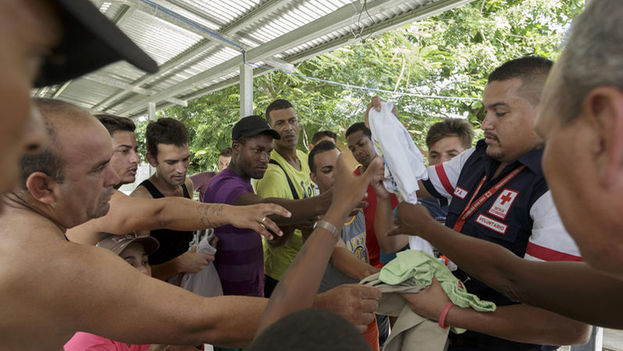
![]() 14ymedio, Pedro Campos, Havana, 25 November 2015 — The current immigration crisis created by the presence of thousands of Cubans in Central America in transit to the United States has put the issue of human rights in Cuba back in the international arena, in particular the civil, political, social and economic rights of Cubans.
14ymedio, Pedro Campos, Havana, 25 November 2015 — The current immigration crisis created by the presence of thousands of Cubans in Central America in transit to the United States has put the issue of human rights in Cuba back in the international arena, in particular the civil, political, social and economic rights of Cubans.
